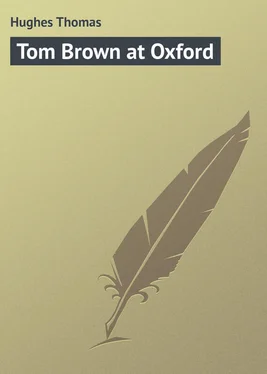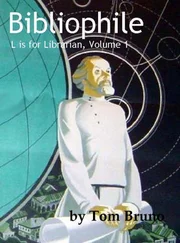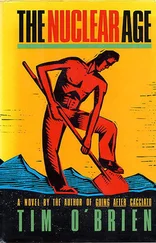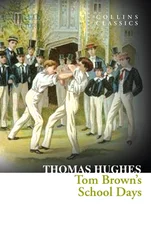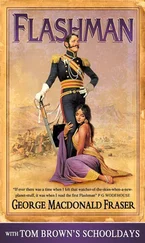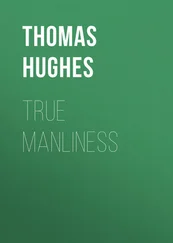Thomas Hughes - Tom Brown at Oxford
Здесь есть возможность читать онлайн «Thomas Hughes - Tom Brown at Oxford» — ознакомительный отрывок электронной книги совершенно бесплатно, а после прочтения отрывка купить полную версию. В некоторых случаях можно слушать аудио, скачать через торрент в формате fb2 и присутствует краткое содержание. Жанр: foreign_prose, foreign_language, на английском языке. Описание произведения, (предисловие) а так же отзывы посетителей доступны на портале библиотеки ЛибКат.
- Название:Tom Brown at Oxford
- Автор:
- Жанр:
- Год:неизвестен
- ISBN:нет данных
- Рейтинг книги:5 / 5. Голосов: 1
-
Избранное:Добавить в избранное
- Отзывы:
-
Ваша оценка:
- 100
- 1
- 2
- 3
- 4
- 5
Tom Brown at Oxford: краткое содержание, описание и аннотация
Предлагаем к чтению аннотацию, описание, краткое содержание или предисловие (зависит от того, что написал сам автор книги «Tom Brown at Oxford»). Если вы не нашли необходимую информацию о книге — напишите в комментариях, мы постараемся отыскать её.
Tom Brown at Oxford — читать онлайн ознакомительный отрывок
Ниже представлен текст книги, разбитый по страницам. Система сохранения места последней прочитанной страницы, позволяет с удобством читать онлайн бесплатно книгу «Tom Brown at Oxford», без необходимости каждый раз заново искать на чём Вы остановились. Поставьте закладку, и сможете в любой момент перейти на страницу, на которой закончили чтение.
Интервал:
Закладка:
Tom took the proffered notes, and read:
"DEAR DRYSDALE, – Please explain the allusion in yours to some mysterious 40L. I remember perfectly the occurrence to which you refer in another part of your note. You were tired of sitting at the table, and went off to supper, leaving me (not by my own desire) to play for you with your money. I did so, and had abominable luck, as you will remember, for I handed you back a sadly dwindled heap on your return to the table. I hope you are in no row about that night? I shall be quite ready to give evidence of what passed if it will help you in any way. I am always yours very truly,
A. ST. CLOUD
"P. S. I must decline the little joint operation for Blake's benefit, which you propose."
The second answer ran:
"DEAR DRYSDALE, – I am sorry that I cannot accommodate Mr. Blake, as a friend of yours, but you see his acceptance is mere waste paper, and you cannot give security until you are of age, so if you were to die the money would be lost. Mr. Blake has always carried his head as high as if he had 5000l. a year to spend; perhaps now he will turn less haughty to men who could buy him up easy enough.
I remain yours sincerely,
JABEZ CHANTER."
Tom looked up and met Drysdale's eyes, which had more of purpose in them than he had ever seen before. "Fancy poor Blake reading those two notes," he said, "and 'twas I brought them on him. However, he shall have the money somehow to-morrow, if I pawn my watch. I'll be even with those two some day." The two remained in conference for some time longer; it is hardly worth while to do more than relate the result.
At three o'clock the next day, Blake, Drysdale and Tom were in the back parlor of a second-rate inn, in the Corn-market. On the table were pens and ink, some cases of Eau-de-Cologne and jewelry, and behind it a fat man of forbidding aspect who spent a day or two in each term at Oxford. He held in his thick red damp hand, ornamented as to the fore-finger with a huge ring, a piece of paper.
"Then I shall draw for a hundred-and-five?"
"If you do we won't sign," said Drysdale; "now, be quick, Ben" (the fat man's name was Benjamin), "you infernal shark, we've been wrangling long enough over it. Draw for 100L at three months, or we're off."
"Then, Mr. Drysdale, you gents will take part in goods. I wish to do all I can for gents as comes well introduced, but money is very scarce just now."
"Not a stuffed bird, bottle of Eau-de-Cologne, ring or cigar, will we have. So now, no more nonsense, put down 75L on the table."
The money-lender, after another equally useless attempt to move Drysdale, who was the only one of the party who spoke, produced a roll of bills, and counted out 75L, thinking to himself that he would make this young spark sing a different tune before very long. He then filled up the piece of paper, muttering that the interest was nothing considering the risk, and he hoped they would help him to some thing better with some of their friends. Drysdale reminded him, in terms not too carefully chosen, that he was getting cent per cent. The document was signed, – Drysdale took the notes, and they went out.
"Well, that's well over," said Drysdale, as they walked towards High Street. "I'm proud of my tactics, I must say; one never does so well for oneself as for anyone else. If I had been on my own hook, that fellow would have let me in for 20L worth of stuffed birds and bad jewelry. Let's see, what do you want, Blake?"
"Sixty will do," said Blake.
"You had better take 65L; there'll be some law costs to pay," and Drysdale handed him the notes.
"Now, Brown, shall we divide the balance, – a fiver a piece?"
"No, thank you," said Tom, "I don't want it; as you two are to hold me harmless, you must do what you like with the money." So Drysdale pocketed the 10L, after which they walked in silence to the gate of St. Ambrose. The most reckless youngster doesn't begin this sort of thing without reflections which are apt to keep him silent. At the gates Blake wrung both their hands. "I don't say much, but I sha'n't forget it." He got out the words with some difficulty, and went off to his rooms.
CHAPTER XI
MUSCULAR CHRISTIANITY
Within the next week or two several important events had happened to one and another of our St. Ambrose friends. Tom had introduced Blake to Hardy, after some demur on the part of the latter. Blake was his senior by a term; might have called on him any time these three years; why should he want to make his acquaintance now? But when Tom explained to him that it would be a kind thing to let Blake come and coach up his history with him, for that unless he took a high degree in the coming examination, he would have to leave the college, and probably be ruined for life, Hardy at once consented.
Tom did not venture to inquire for a day or two how the two hit it off together. When he began cautiously to approach the subject, he was glad to find that Hardy liked Blake. "He is a gentleman, and very able," he said; "it is curious to see how quickly he is overhauling Grey, and yet how Grey takes to him. He has never looked scared at him (as he still does at you, by the way) since the first night they met. Blake has the talent of setting people at their ease without saying anything. I shouldn't wonder if Grey thinks he has sound Church notions. It's a dangerous talent, and may make a man very false if he doesn't take care." Tom asked if Blake would be up in his history in time. Hardy thought he might perhaps, but he had a great lee-way to make up. If capacity for taking in cram would do it, he would be all right. He had been well crammed in his science, and had put him (Hardy) up to many dodges which might be useful in the schools, and which you couldn't get without a private tutor.
Then Tom's first wine had gone off most successfully. Jervis and Miller had come early and stayed late, and said all that was handsome of the port, so that he was already a social hero with the boating set. Drysdale, of course, had been there, rattling away to everybody in his reckless fashion, and setting a good example to the two or three fast men whom Tom knew well enough to ask, and who consequently behaved pretty well, and gave themselves no airs, though as they went away together they grumbled slightly that Brown didn't give claret. The rest of the men had shaken together well, and seemed to enjoy themselves. The only drawback to Tom had been that neither Hardy nor Grey had appeared. They excused themselves afterwards on the score of reading, but Tom felt aggrieved in Hardy's case; he knew that it was only an excuse.
Then the training had begun seriously, Miller had come up specially for the first fortnight, to get them well in hand, as he said. After they were once fairly started, he would have to go down till just before the races; but he thought he might rely on the Captain to keep them up to their work in the interval.
So Miller, the coxswain, took to drawing the bow up to the ear at once. At the very beginning of the term, five or six weeks before the races, the St. Ambrose boat was to be seen every other day at Abingdon; and early dinners, limitation of liquids and tobacco, and abstinence from late supper parties, pastry, ice, and all manner of trash, likely in Miller's opinion to injure nerve or wind, were hanging over the crew, and already, in fact, to some extent enforced. The Captain shrugged his shoulders, submitted to it all himself and worked away with all imperturbable temper; merely hinting to Miller, in private, that he was going too fast, and that it would be impossible to keep it up. Diogenes highly approved; he would have become the willing slave of any tyranny which should insist that every adult male subject should pull twenty miles, and never imbibe more than a quart of liquid, in the twenty-four hours. Tom was inclined to like it, as it helped him to realize the proud fact that he was actually in the boat. The rest of the crew were in all stages of mutiny and were only kept from breaking out by their fondness for the Captain and the knowledge that Miller was going in a few days. As it was, Blake was the only one who openly rebelled. Once or twice he stayed away. Miller swore and grumbled, the Captain shook his head, and the crew in general rejoiced.
Читать дальшеИнтервал:
Закладка:
Похожие книги на «Tom Brown at Oxford»
Представляем Вашему вниманию похожие книги на «Tom Brown at Oxford» списком для выбора. Мы отобрали схожую по названию и смыслу литературу в надежде предоставить читателям больше вариантов отыскать новые, интересные, ещё непрочитанные произведения.
Обсуждение, отзывы о книге «Tom Brown at Oxford» и просто собственные мнения читателей. Оставьте ваши комментарии, напишите, что Вы думаете о произведении, его смысле или главных героях. Укажите что конкретно понравилось, а что нет, и почему Вы так считаете.
